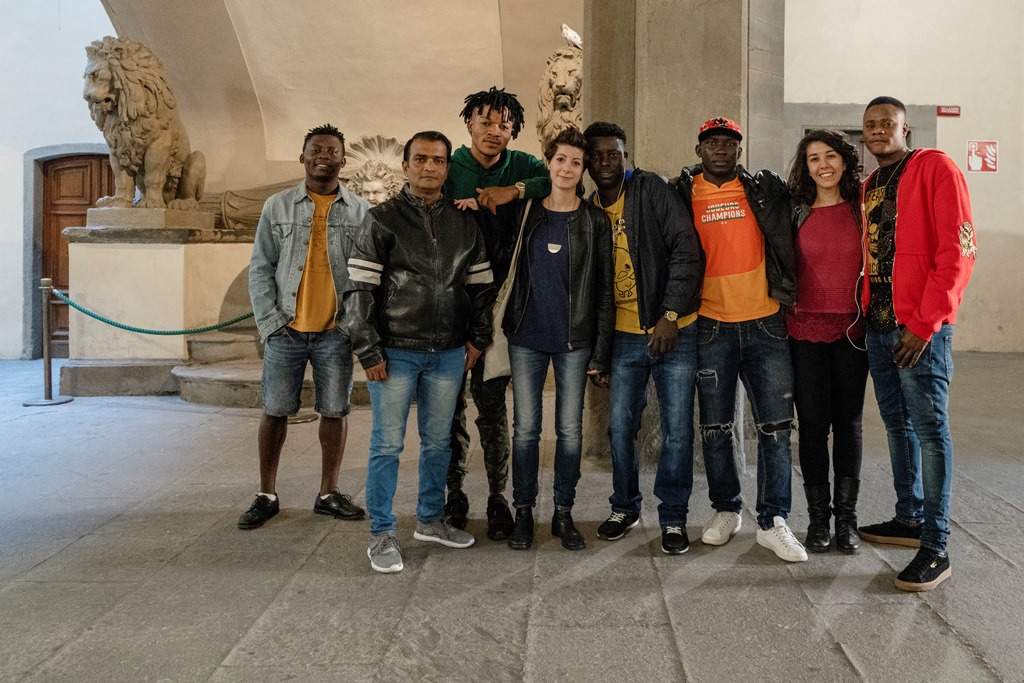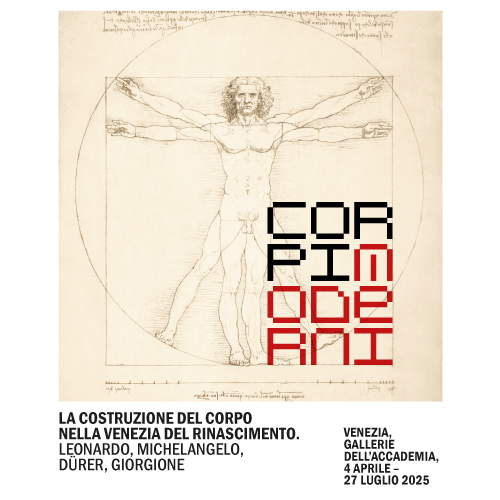Florence, migrants will tell the story of the city's museums: start of heritage-based integration project
In Florence, green light to an experiment that aims to bring migrants closer to the city’s cultural heritage: it is the Amir project (an acronym for Reception Museums Inclusion Relationship, but also a term that in Arabic means “young prince”), and it aims to look at our culture through the eyes of foreigners who have immigrated to Italy, inviting them to cross the thresholds of museums, to appropriate a new history and identity and to tell how they see, read, feel and interpret our heritage. The project (which stems from some very specific questions: to whom does cultural heritage belong? Can we tell the art that by definition we call Florentine, Italian, Western, as the fruit of a centuries-long mingling of cultures, values, symbols that belong to all humanity?) starts from the belief that culture brings with it well-being and integration: thus, the Florentine Civic Museums, the Museums of the City of Fiesole, the Utopia Station housed inside the Museo dell’Opera del Duomo, the Museo degli Innocenti of Florence and the Primo Conti Foundation of Fiesole thought to build (thanks to the support of the Region of Tuscany and the CR Florence Foundation) a path aimed at fostering dialogue between museums and immigrants and to give rise, over time, to a relationship of confidence, attendance and participation in heritage by foreign people.
The first step of the path consisted of two days of training addressed to museum workers from all over Tuscany, in which, thanks to the contribution of experts, historical-artistic issues potentially related to the history and identity of immigrants were studied in depth and flows, needs and social characteristics of immigration in Tuscany and the Florentine area were illustrated. The second step was to propose to different groups of foreigners (CAS, SPRAR projects, Italian schools, reception centers, residential facilities, families and individual citizens) visits and activities in the museums participating in the project, conceived as reciprocal opportunities for knowledge and exchange.
The next phase brought thirty immigrants to participate in a training course that enabled them to acquire the skills to in turn accompany groups of foreigners and Italians on museum visits. The course, which began last November 12, included a general part (history, art history, Italian, interpersonal communication) and a specific part on the individual museum. At the end of the course, immigrants from all parts of the world were thus trained to become museum mediators, narrating and interpreting artistic heritage in all languages. The new “ambassadors,” including Afghans, Tunisians, Egyptians, Malians, Gambians, Moroccans, Cameroonians, Colombians, Italians, Nigerians, Venezuelans, Senegalese, Ivorians, Peruvians, Ghanaians, Romanians, Guineans, and Pakistanis, will offer their tours in Italian and in their mother tongues to foreign nationals and Italians starting December 2, 2018 throughout spring 2019.
It is, Amir’s leaders explain, an integration project that makes those living in Florence active subjects of social change, but even more so it is a cultural experiment that, they say, “gives us Italians, Westerners, Eurocentric, the vertigo of disorientation and the vitality of discovery.” because, as a young African visiting the Roman theater in Fiesole recalled, “it is amazing that such beautiful places exist and it is amazing that they have anything to say to any of us.” The first visits (without reservations) will take place just on Sunday, Dec. 2: at 10 a.m. at the Primo Conti Museum in Fiesole, at 10:30 a.m. at the Bandini Museum and at 11 a.m. at the Museo Civico Archeologico; in Florence at 10:30 a.m. at the Piazza del Duomo, at 3 p.m. at Palazzo Vecchio and the Museo degli Innocenti, and finally at 6:30 p.m. at the Museo Novecento.
The Museo Civico Archeologico and Archaeological Area (Fiesole), Museo Bandini (Fiesole), Museo Primo Conti (Fiesole), Museo di Palazzo Vecchio (Florence), Museo Novecento (Florence), Museo dell’Opera del Duomo (Florence), and Museo degli Innocenti (Florence) are involved in the project. Information and tour programs can be found at www.amirproject.com.
 |
| Florence, migrants will tell the story of the city's museums: start of heritage-based integration project |
Warning: the translation into English of the original Italian article was created using automatic tools. We undertake to review all articles, but we do not guarantee the total absence of inaccuracies in the translation due to the program. You can find the original by clicking on the ITA button. If you find any mistake,please contact us.





























